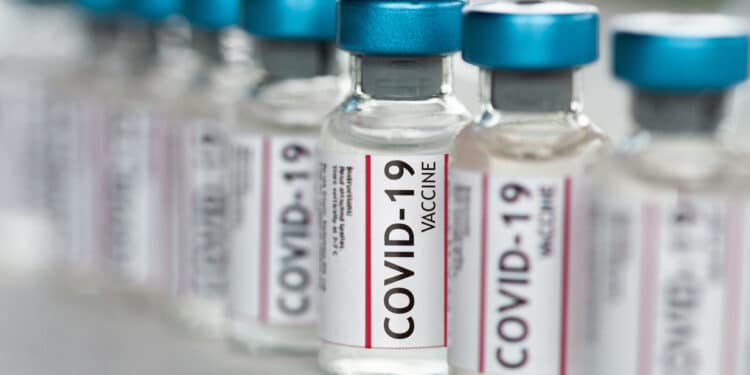According to a whistleblower, the U.S. Food and Drug Administration (FDA) improperly downplayed health and safety concerns in inspections of multiple pharmaceutical production facilities, including a plant that will help produce the Johnson & Johnson COVID-19 vaccine.
The whistleblower, former FDA safety officer Arie Menachem, alleges that FDA officials downgraded inspection conclusion reports at several locations from “official action indicated” (OAI) to “voluntary action indicated” (VAI) without following the proper procedures to issue such a change. VAI is a less serious designation than OAI and does not require that the inspected facility make urgent changes to the problems identified by the FDA investigation. According to Menachem, these improper reclassifications resulted in diminished compliance and could have placed public safety at risk. Menachem details multiple locations where the FDA improperly redesignated investigative findings, including a Merck factory in Durham, North Carolina that is now being retrofitted to help produce the Johnson & Johnson vaccine.
Menachem’s allegations were outlined in a letter sent to President Biden on March 31 by the U.S. Office of Special Counsel (OSC). In the letter, Henry Kerner, the U.S. Special Counsel, states: “I am troubled by many aspects of this matter. I concur with [Menachem] in his assertion that the [FDA] narrowly focuses on procedural issues, and in so doing, disregards the fact that inspection reports detailing serious concerns were downgraded in a manner that may compromise compliance and safety efforts.”
Kerner further writes that he is “most concerned by the agency’s conduct involving the 2018 Merck Sharp and Dohme inspection.” According to Menachem, the FDA instructed him to inspect the 850,00 sq ft Merck plant by himself in under a week despite multiple requests by Menachem for more time and resources. During his investigation, Mencachem found “the improper presence of a biohazard bin used to collect employee uniforms soiled with urine and feces.” According to the OSC letter, this finding corroborated the story of a Merck employee, who reported that “employees were soiling their uniforms rather than taking bathroom breaks which would have required them to disrobe and leave manufacturing areas.”
Furthermore, Menachem found that Merck was “intentionally destroying evidence of possible violations.” However, in the final report,the FDA did not substantiate these allegations. In response, Menachem claims that “the FDA’s demonstrated unwillingness to hold firms accountable for significant safety issues could dramatically compromise public health.”
According to Kerner’s letter, the OSC’s investigation into the matter found that the FDA report and reclassification of the final findings meet “all the statutory requirements but…do not appear reasonable.” Kerner urges the FDA “to closely examine compliance matters like these where inspectors identified serious compliance concerns, but where the agency reclassified their findings after significant time had elapsed.”
In addition to sending the letter to President Biden, Kerner sent a copy of the letter and the FDA report to the Chairs and Ranking Members of the Senate Committee on Health, Education, Labor and Pensions, and the House Committee on Energy and Commerce.
Read:





